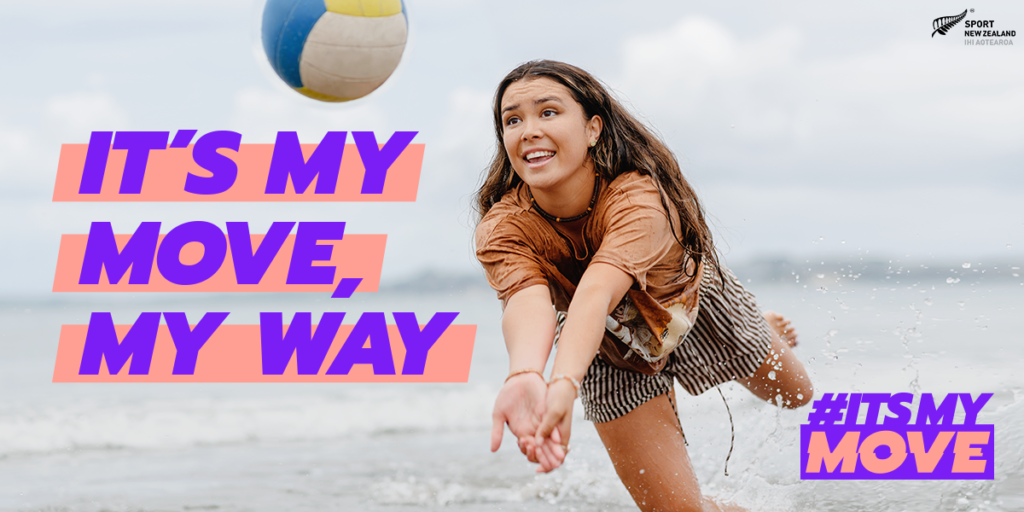Sport NZ spoke with teenage girls and their friends across Aotearoa to explore common themes around how they relate to physical activity. These factors combine to discourage girls from sport and recreation and limit their potential.
As a parent, caregiver, volunteer or sector leader, you can change the game to encourage and support young women in a Covid-changed world. Here’s how:
- When the fun dies, so does enjoyment. For many young women, winning takes a back seat to the simple pleasure of getting together with the squad and playing the game. So what’s the first thing you say to your daughter after a game – did you win or did you have fun?
- Girls feel most empowered and capable when they’re with friends. Many girls won’t try something new or participate unless they have a mate to support them. However too often, physical activity environments result in girls being split up from their friends. Understanding positive peer impact is important.
- Older teens get busier and need more flexible activity options. Academic pressures, after-school jobs and home life compete for hours in the day. That means structured activities with high training demands get harder to accommodate. Support young women to incorporate physical activity into their day in any way. That might be walking the dog, doing Tiktok dances or a 15-minute online workout. Just a little activity is better than none.
- Sport is not necessarily the end game. Young women are often guilt-tripped into sticking with sport versus trying other forms of physical activity that better meets their needs. This is because adults view competitive sport as the most valuable type of activity. If young women are to establish a love of being active, they need to find accessible activities that bring them joy to build a habit around.
- Social anxiety is high and drives lack of confidence. Almost all young women fear being judged and worry about what others say about them. For some this means avoiding activities where they might feel inferior or less competent. Remember confidence is fragile and they are easily put off when thrown into ‘comparative’ settings.
- There is pressure to achieve the perfect body shape as portrayed in social media. Many young women have experienced comments by adults – whether strangers, peers or families – related to body shape or weight. Often their shape becomes a defining factor as to whether they ‘fit’ into different activities. Young women should feel supported in any physical activity setting.
- Girls value wellbeing over pure physical fitness. Reasons for participating may be different for young women – whether influenced by body image, physical fitness or just to feel better. The bottom line is that you don’t need to tell them that exercising is important. They know that being active can positively impact all aspects of their lives. The problems they encounter are more related to access, motivation and confidence.
- Young women are subject to additional physical challenges. Body changes enhance social anxiety. It could be breast size or periods or changing body shape generally. Understanding this dynamic and being mindful of related factors like uniforms is important.
- Digital devices are not the enemy. Young women understand that mobile phones and social media can be time wasters. They feel the pressure at how much time can be lost just scrolling, especially at night. However digital devices can also support physical fitness through on-demand classes, smart watches and even Tiktok dances that get the heart rate up. Encourage young women when they move and support exploration of online fitness.
- Show that girls don’t play second fiddle. Young women are acutely aware that the male version of an activity or race can be perceived as harder and more exciting. We can change this societal norm by supporting the value and visibility of women in sport and recreation with passion.
This article was originally published on sportnz.org.nz for the #itsmymove campaign.
#itsmymove explores factors like judgement, lack of confidence and fear of failure that are barriers to increasing participation by young women. Become part of the #itsmymove movement and help young women to be active and healthy their way.








